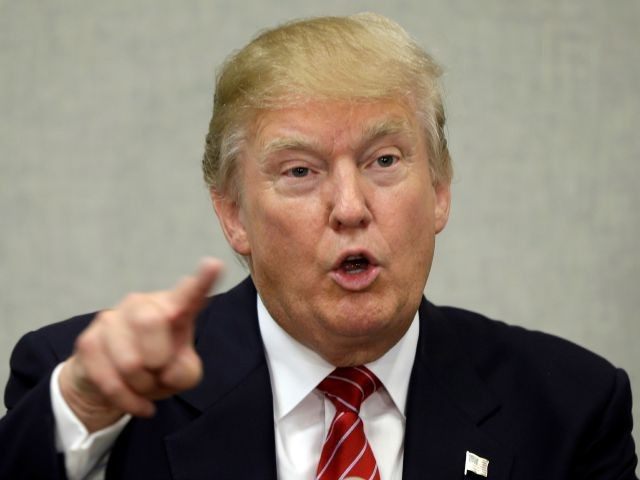President-elect Donald Trump took to Twitter to denounce communist China’s economic and military policies following his direct call with Taiwan’s democratically elected president. Critics have protested that the call bypassed a longstanding diplomatic protocol known as the “One China” policy.
Despite the “One China” policy imposed by Beijing, the United States remains Taiwan’s most important political ally and its only arms supplier, even in the absence of a formal diplomatic relationship.
“Interesting how the U.S. sells Taiwan billions of dollars of military equipment but I should not accept a congratulatory call,” tweeted Trump:
Since 1979, China has considered Taiwan to be a renegade province, a stance that the United States has respected by acknowledging Beijing’s claim that the island is part of China.
America’s initial recognition of the “One China” policy in 1979 occurred under Democrat President Jimmy Carter. Trump’s direct call with Taiwanese President Tsai Ing-wen marked the first time a U.S. president-elect or president broke with nearly four decades of U.S. policy on China by implicitly acknowledging the Taiwanese leader as a fellow head-of-state.
Rather than playing down his call with the Taiwanese leader, Trump used his platform on Twitter to comment vocally on it against China, a country known for its widespread human rights violations. He tweeted:
Unsurprisingly, Trump’s call with Taiwan has angered communist officials in Beijing.
Through an online editorial published by its state-run Global Times, China warned Trump that overturning the “One China” principle would create a crisis between his administration and the communist country.
“We believe this is not something the shrewd Trump wants to do,” declares the editorial.
On Saturday, China’s Foreign Ministry announced that it had lodged a formal protest with the “relevant side” in the United States, reports the Wall Street Journal (WSJ).
While campaigning, Trump stressed that he would take a tougher stance on China’s unfair trade practices, including imposing tariffs on Chinese goods and declaring the communist nation a currency manipulator, a move that would carry economic sanctions.
Soon after media reports surfaced about his call with the Taiwanese President, Trump tweeted that it was Taiwan’s leader who called him:
Nevertheless, the Taipei Times reports that the call was “arranged by his Taiwan-friendly campaign staff.”
Alex Huang, a spokesman for President Tsai, later added, “Of course both sides agreed ahead of time before making contact,” reports the Independent.
Trump’s aides dismissed the call with President Tsai Ing-wen as a simple courtesy call, without elaborating on who called whom.
“President-elect Trump spoke with President Tsai Ing-wen, who offered her congratulations,” noted Trump’s transition team in a statement. “During the discussion, they noted the close economic, political, and security ties [that] exist between Taiwan and the United States. President-elect Trump also congratulated President Tsai on becoming President of Taiwan earlier this year.”
Incoming White House Chief of Staff Reince Priebus downplayed the criticism of Trump’s conversation with the leader of Taiwan. “This is not a massive deviation of our policy,” he said. “But President Trump has made it clear that he is going to work with [the People’s Republic of China] to make sure that we have a better deal, that we have better trade agreements.”
President-elect Trump “knew exactly what was happening” when he spoke with Taiwanese President Tsai Ing-wen, Priebus told CBS News.
President Barack Obama’s administration has said the longstanding “One China” policy has not changed.

COMMENTS
Please let us know if you're having issues with commenting.